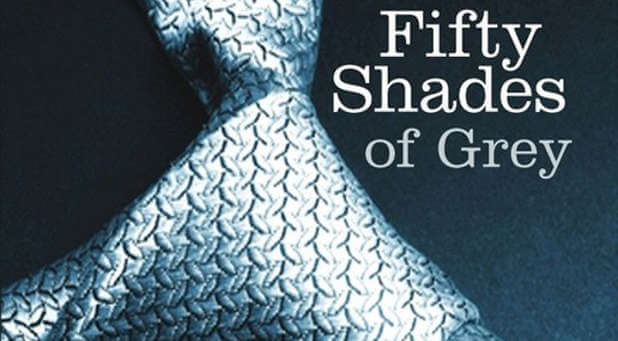When the novel Fifty Shades of Grey was published three years ago, critics described it as “dull and poorly written,” “depressing” and “a sad joke.” Yet, it sold 100 million copies.
Women were fascinated by the dark tale of a 21-year-old college student, Ana Steele, who falls in love with a handsome but mysterious young billionaire named Christian Grey after she interviews him for a newspaper.
The book was accurately dubbed “mommy porn” because it is sexually graphic and full of crude language, and also because Christian expects his girlfriends to totally submit to his sexual tastes—which involve whips, chains, handcuffs and gray neckties.
This is not just mainstream porn. This is mainstream bondage porn. And it’s coming to a theater near you, just in time for Valentine’s Day.
The movie version of the book will hit theaters on Feb. 13, and Fandango says Fifty Shades of Grey is already breaking records for advance ticket sales. Presumably, fans of the book will be lining up at the cineplex to watch Christian abuse Ana in his bedroom, which she calls the Red Room of Pain.
Critics expected the film to be rated N-17. (After all, the actor who plays Christian, Jamie Dornan, visited a sex dungeon to prepare for the role.) But the Motion Picture Association of America announced last week that Fifty Shades will be rated R. That means (1) the sex scenes were edited carefully, (2) teenagers can see it legally, and (3) the movie will probably make a ton of money.
I think I’m going to be sick.
We Americans get really angry when oil companies spill toxic fuel in our oceans; yet we applaud when Hollywood dumps a tanker of poisonous garbage like Fifty Shades of Grey on our country—with no offer to clean up the damage. We should be outraged. I’m not going to picket my local theater when this movie debuts, but I’m urging people to think before they spend $10.50 to flush what’s left of American decency down the toilet.
Here are three of the biggest reasons why we should urge everyone to cover their eyes and run from Fifty Shades of Grey:
1. It encourages sexual deviance. In the novel, Christian invites Ana to become his sexual partner, but he asks her to sign a document that spells out what he plans to do to her—and he demands that she tell no one about it. The contract says: “The Submissive shall accept whippings, floggings, spankings, canings, paddlings, or any other discipline the Dominant should decide to administer, without hesitation, inquiry or complaint.” Ana finds out that Christian has had relationships like this with 15 other women—and yet she still pursues him, agrees to the painful sex and enjoys it.
There might have been some redemptive value in this movie if Ana called the police or ran out of Christian’s penthouse and refused his advances because she respected herself. But no—she submits to the abuse, and signals to women everywhere that there is pleasure in pain. The film also tells women that it’s OK to be a mindless sexual slave, especially if your boyfriend is rich, handsome and has his own helicopter.
2. It glorifies violence against women. Last year a researcher from the University of Michigan did a study on the effects of Fifty Shades of Grey on women readers. It showed that women who read the books (it is actually a trilogy) were 25 percent more likely to have an abusive partner; 34 percent were more likely to have a partner who stalked them; and 65 percent were more likely to engage in binge drinking.
Just as there is a link between violent video games and violent behavior in teen boys, this study showed that women who read graphic porn novels tend to gravitate toward the types of abusive relationships depicted in books like Fifty Shades. The study also showed that these women were more likely to have eating disorders. (Interestingly, the dominant male character in Fifty Shades carefully controls his girlfriend’s eating habits.)
3. It totally perverts the meaning of love. In one scene in the book, Christian buys Ana a platinum and diamond bracelet so she can cover the bruises on her wrists—which she got after being tied to her boyfriend’s bed. The message from Ana’s lover: I will hurt you, but I will buy you nice gifts so you will stay with me. That’s twisted. And couples are going to see this movie on Valentine’s Day?
One of the most bizarre moments in the book occurs after Ana leaves Christian and then goes back to him. She says: “The physical pain you inflicted was not as bad as the pain of losing you.” Any psychologist will tell you that is the mentality of an abuse victim, who is brainwashed to believe that the attention she gets from her abuser is better than no attention at all.
True love is not about pain, domination or control—but Hollywood is happy to serve big helpings of this slop if people are willing to pay for it. Please protect women. Please defend decency. Please don’t support this movie.
J. Lee Grady is the former editor of Charisma. You can follow him on Twitter @leegrady. He is the author of 10 Lies the Church Tells Women and other books. You can learn more about his ministry, The Mordecai Project, at themordecaiproject.org.















































